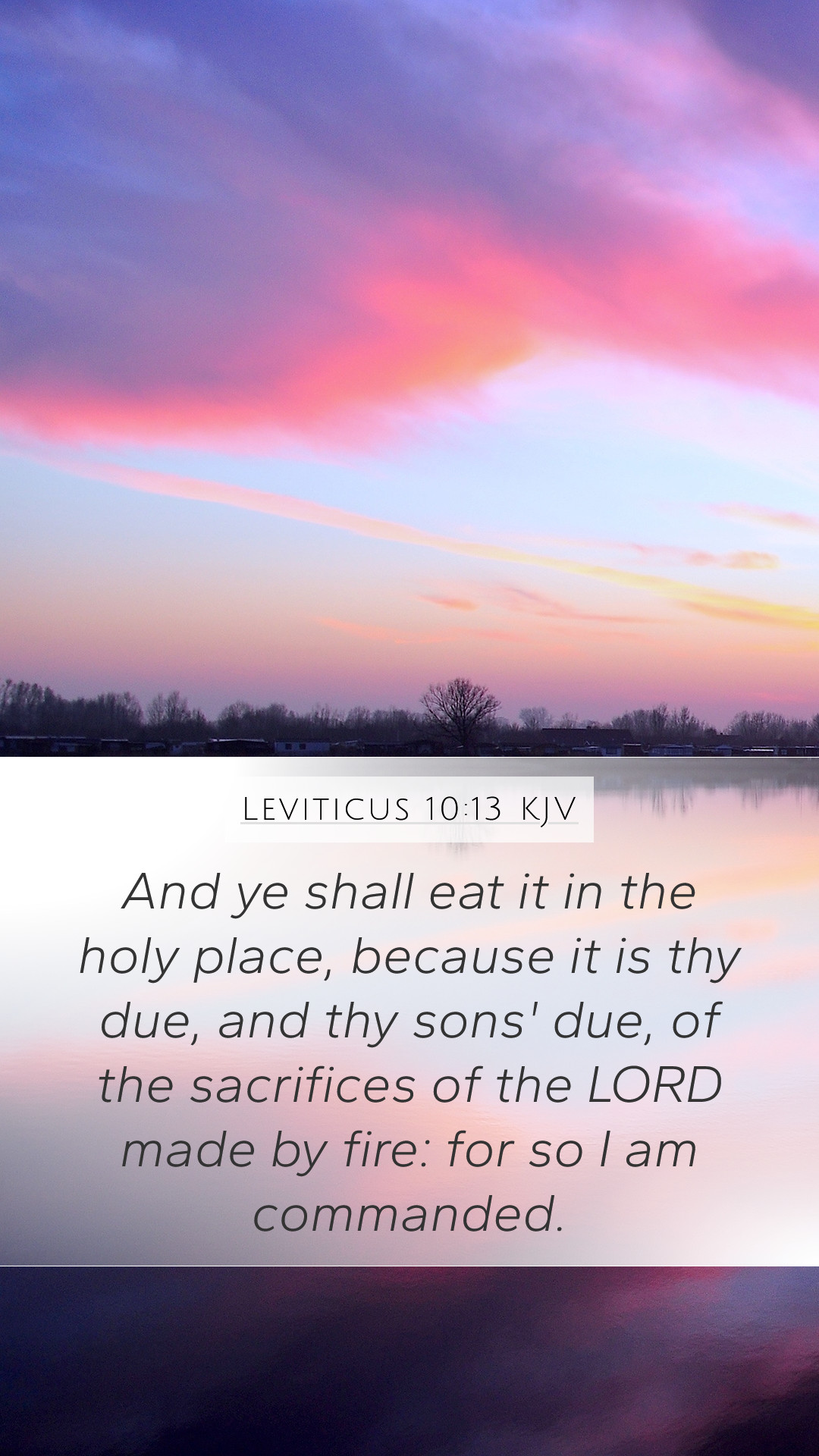Understanding Leviticus 10:13: Insights from Public Domain Commentaries
Leviticus 10:13 states: "And you shall eat it in a holy place, because it is your due and your sons' due of the sacrifices of the LORD made by fire: for so I am commanded." This verse provides essential guidance on the priestly duties regarding the sacrificial offerings and their consumption. Here, we will delve into the meaning of this Bible verse through the lenses of respected commentators such as Matthew Henry, Albert Barnes, and Adam Clarke.
Analysis of the Verse
In this verse, God outlines the importance of eating the sacrificial offerings in a designated holy place, emphasizing the sacredness of these acts. Each commentator offers unique perspectives that contribute to a deeper understanding of this scripture:
-
Matthew Henry's Commentary:
Henry highlights the attitude of reverence that the priests must maintain while conducting their sacred duties. He emphasizes that these offerings are not mere food; rather, they serve the purpose of establishing a covenant between God and His priests. The consumption in the holy place signifies the communion and fellowship between God and His appointed servants.
-
Albert Barnes' Notes:
Barnes focuses on the idea of 'due' as a divine right bestowed upon the priests. He explains that this provision is part of the covenantal blessings, establishing that the priests and their households have a rightful share in the sacrifices made for the Lord. Such a practice not only sustains the priests but also symbolizes God's care for those who serve Him.
-
Adam Clarke's Commentary:
Clarke takes a closer look at the cultural and historical context within which these practices were established. He discusses how the priestly system in Israel was designed to ensure that the needs of the priests were met while they were engaged in God's service. Eating the sacrifices within the holy place reinforces the sanctity of their office and the importance of their spiritual role in Israel.
Meaning of the Verse
The meaning of Leviticus 10:13 transcends its immediate context, offering insights into the nature of God’s provision for His ministers. The requirement to eat in a holy place signals:
- A call to reverence in worship and ministry.
- The provision and care from God for those who serve Him.
- The importance of maintaining a spiritual connection in the act of consumption.
Spiritual Application
In applying this scripture to daily life, believers can draw parallels in understanding how God provides for their needs and the importance of engaging in worship with reverence and appreciation. Understanding Scripture in this way encourages modern readers to reflect on their own relationship with God and their community.
Related Bible Cross References
- Exodus 29:33 - Discusses the sharing of sacrificial offerings.
- Numbers 18:10 - Establishes similar guidelines for the consumption of offerings.
- Deuteronomy 12:17-18 - Encourages rejoicing in the presence of the Lord with offerings.
Conclusion
Leviticus 10:13 serves as an important teaching on the nature of God’s provision and the sanctity of worship. By exploring this verse with the insights from Matthew Henry, Albert Barnes, and Adam Clarke, one can gain a comprehensive understanding of its significance and apply its teachings to contemporary faith practices.
For deeper exploration and Bible study insights:
- Engage in online Bible study groups that emphasize scripture analysis.
- Utilize Bible study guides to explore challenging passages.
- Determine Bible study topics that relate the teachings of Leviticus to broader biblical narratives.


